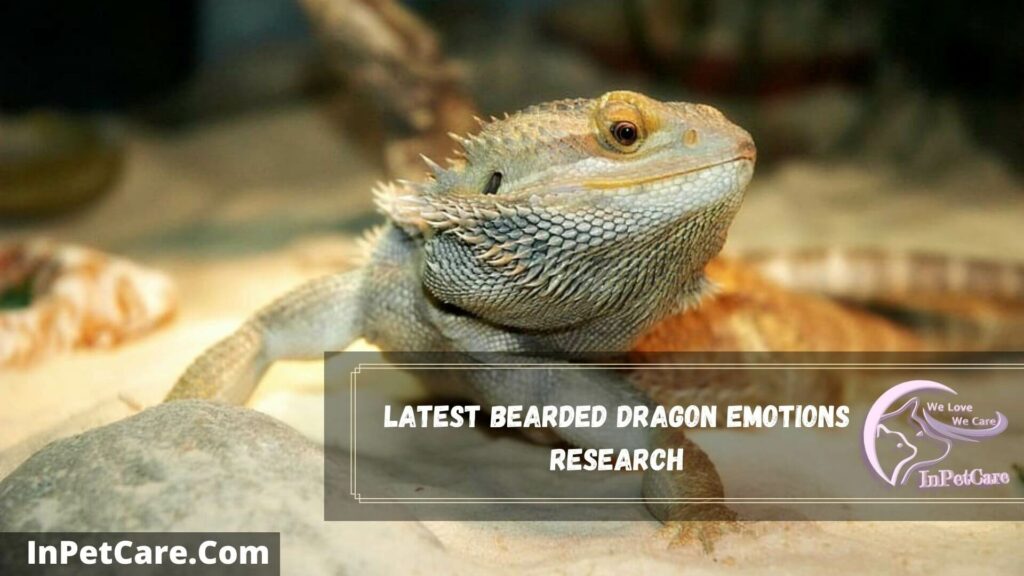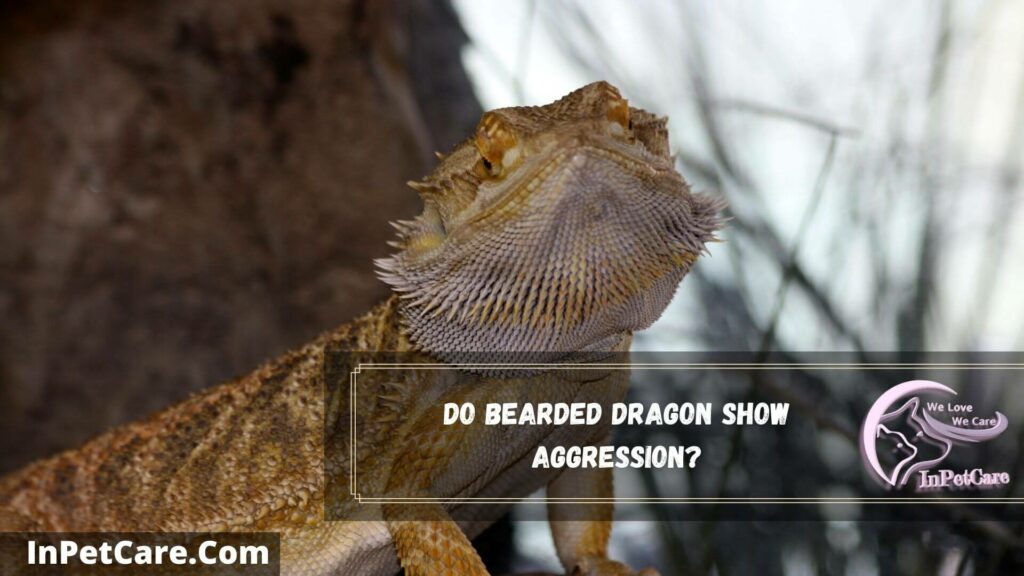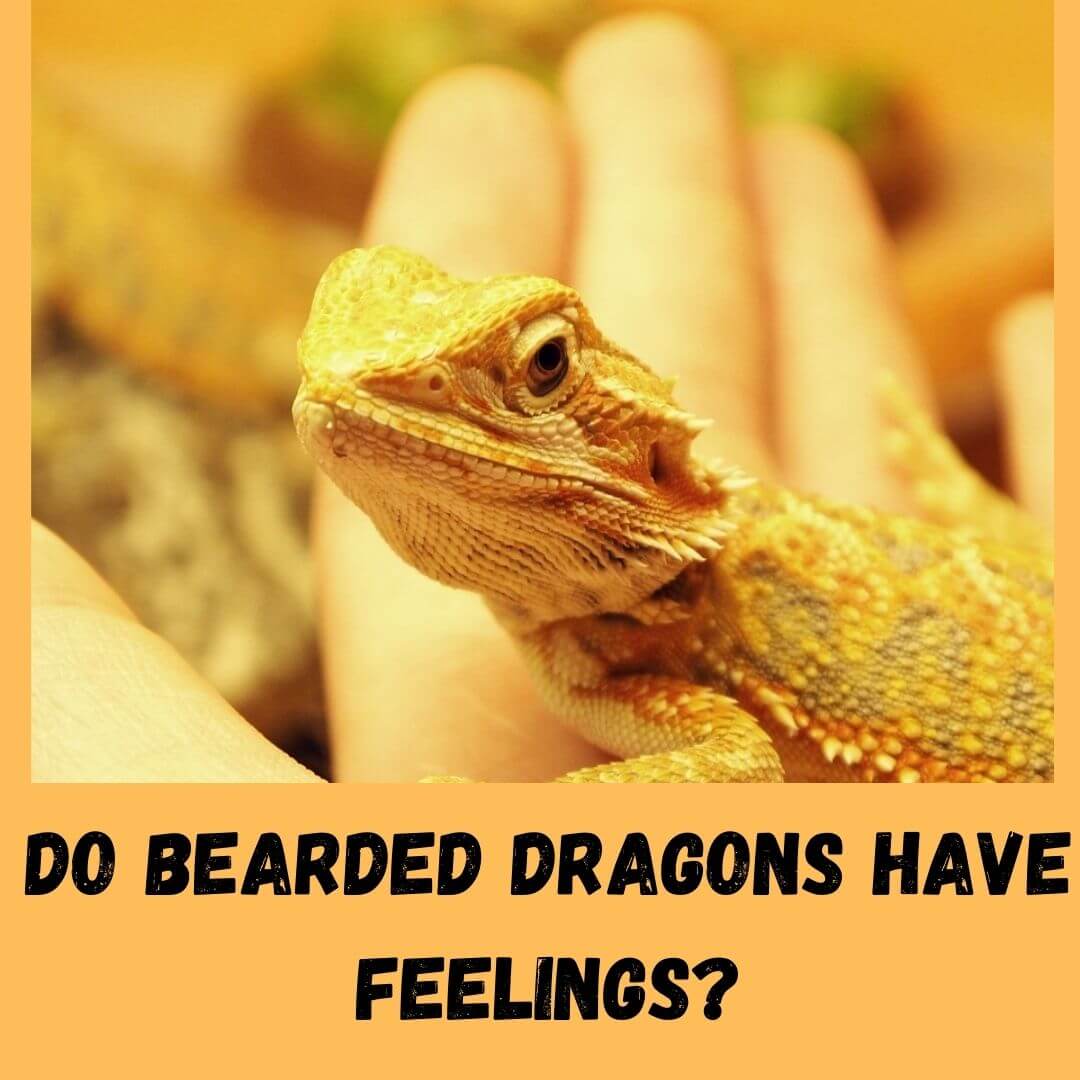Reptile enthusiasts always wondered how well Bearded Dragon connects with a human. Do Bearded Dragons have feelings similar to dogs and cats, or do they show any affection? To find out, I decided to dig a little bit deeper and research to learn if they had feelings or not. In this article, I am going to tell you all the information needed on their emotions. We will also learn how well they do when kept as pets.
Do Bearded Dragons Have Feelings? Bearded Dragon is restricted to feeling only three basic emotions with an undeveloped emotional system – fear, aggression, and pleasure. However, they can Bond to their human companion, but the affection level depends entirely on each individual personality.
Many people claim their Bearded Dragon being sad and scared while being capable of feeling positive feelings, emotional pain, suffering, pleasure, and the negative feeling. Our research found that They do have some emotional states, and those emotions can trigger their physical movement, expression & behavior.
People with dogs and cats already accepts that their pet can feel pain and pleasure but can bearded Dragon have feelings? Bearded Dragons can feel but not on the same level/order as those shown by dogs or cats. They do have the ability to connect with us better, but it depends upon each personality.
You already know that dogs are capable of high Intelligence and can learn from others. We have interacted with many dogs and cats in our lifetime because they have the same environmental need. We can say that the reptiles like Bearded Dragons are limited to their interaction time since they need a specialized environment.
Mammals like dogs and cats tend to be very vocal and show facial expressions, making it easier to connect with & understand them. However, it cannot be easy to connect with the Bearded Dragon’s emotional state. Sentience, emotions, or sentiments in mammals like dogs and cats has been widely recognized and studied. Many articles are available on these kinds of studies.
In 2012, a group of well-respected neuroscientists at the University of Cambridge gathered to study and recognize animals’ emotional systems and sentience states. After many studies, they declared that humans are not the only species in our consciousness. Other well-being and animals are just as capable of being emotional states as humans. The debate and the declaration were ended with the signature of neuroscientists.
That study is alone enough to evident humans are not the only species that possess the neurological substrate to generate consciousness. Mammals and non-human animals, including dogs, cats, birds, Octopus, and other animals, also pose these kinds of neurological substrates to generate consciousness.
Post Contents
Do Bearded Dragons Have Feelings?
According to medical & science, Bearded Dragons emotional system is limited to experience three basic expressions only:
- Fear
- Aggression
- Pleasure
Many may claim to observe their beardie being sad sometimes, but is this true?
There are many types of feeling that bearded Dragons may display. Many owners have reported their Dragon showing a range of emotions. Well, the beardie can react to their environment and well-being based on their personality. Some beardie will like to be left alone on their own for an extended amount of time without any interaction at all.
On the other side, some may even react with affection or hostility to humans. We also learned that some bearded Dragons also enjoy the company of their owners and showing gestures. Here are the types of feeling that we learn from Bearded Dragon display, expression, reaction, body language & movement.
- Pleasure – sleeping or enjoying when you stroke or touch them is a clear indication of pleasure.
- Anger – Angry bearded Dragons will start popping out their beard, biting, bobbing their head, and hissing.
- Stress – A bearded dragon can start running back and forth alongside their tank, curling up or exhibit hiccups like behavior out of stress. This behavior needs to be e at rest properly.
- Curiosity – Curious body language and movements can be noticed when a bearded dragon is kept in a safe and large enclosure. It makes them curious and explores.
- Comfort – when a bearded dragon is basking, popping, sleeping, and eating normally, which are important daily routines, indicates they are healthy and happy. It also resembles comfort.
- Fear – Bearded Dragon usually makes hiss sounds when they feel threatened or scared. They usually tend to hiss at their rivals or Predator to make them seem themself more scary and threatening.
- Boredom – you might have noticed some bearded Dragon scratching at the glass from time to time which is generally considered a negative behavior out of boredom.
- Hunger – Many owners claim the bearded Dragon glass surfing, which is a clear indication of hunger. Glass surfing, eating old leaf, or anything like that is a clear indication of hunger. This is what they can do to let you know and communicate that they are hungry.
- Pain – Neuroscientist & researchers’ studies have proved that reptiles, including bearded dragons, carry all the neurotransmitters and anatomy required to feel pain. Bearded Dragons can feel pain, but they have been evolved to hide their pain to protect themselves against the predators in the wild. Hiding pain helps them avoid predation in the wild.
Latest Bearded Dragon Emotions Research

The highest order of the brain function is to connect emotionally with other creatures. When we studied humans, we learned that learning behavior like copying/mimicking others is the key factor and the indicator of emotional development. For decades, we have been bonding and practicing such behavior to form teams or engage in groups.
A fascinating study was done by Hungarian and British researchers recently on beardie social behavior. They decided to do their amazing study on Bearded Dragon social behavior at the University of Lincoln in the UK. One Dragon was trained to retrieve its food using its claws from behind the door. The other 2 out of six bearded Dragons were allowed to sit and observe this behavior.
Now, both the Dragons had to mimic the behavior themselves. Well, both of them did manage to open the door while the others, not observing, couldn’t. The researchers behind this study argue that the Bearded Dragon’s ability to learn or mimic others indicates a higher order of brain function and emotional development than was suspected earlier.
In short, the researchers behind this project and witnessing this study claim that bearded Dragons can mimic social behavior, indicating emotional development necessary to connect or form a bond with others of their kind or others.
Do Bearded Dragon Show Affection?
Is Bearded Dragon Affectionate To Their Human Companion?
From a few anecdotal evidence from other bearded Dragons and reptiles owners, we learned that they could recognize and bond with their owners. You will notice them frequently engaging in one of the following behaviors listed below. All this kind of behavior indicates a certain amount of affection on its level.
11 Bearded Dragon Behaviours Indicating Affection
- Beardie watching TV with their family member
- Beardie Reacting in a joyful way when he is stroked
- Beardie reacts with anger or hostility whenever anyone other than their owner is trying to manage them.
- Beardie Searching for their owner to find security when they are scared
- Beardie Excited about their owner’s return; they scratch at the glass in their tank
- Beardie Sleeping beside their owner in the night
- Beardie reacts with pleasure when scratched
- Beardie ability to Recognize their owners
- Beardie Seated on their owner’s lap
- Beardie Curling to their owner’s neck
- Beardie Going for walks with their owners, both off and on the leash
Do Bearded Dragon Show Aggression?

Bearded dragons are usually considered very calm pets. They are generally not very aggressive by Nature. However, they can be aggressive towards Predators and show aggression if they feel scared, provoked, or threatened. If you provoke them enough – they can even bite you. Aggressive behavior like hissing can easily be noticed when they are threatened.
I have noticed aggressive bearded Dragons opening their mouth with hissing. Some may also start running around with head bobbing. Bearded flared and lashing tail is also included as aggressive behavior.
Is Bearded Dragon Aggressive Towards Human?
Not necessarily; they are very gentle and calm reptiles. They may become aggressive towards humans if they don’t like being touched by them. They are very popular for being a friendly and docile pet to their keepers. However, some male shows certain aggressions or aggressive behavior straight after winter as spring arrives.
It is likely to happen with the males one. Seasonal aggression is very common in males during spring due to sexual maturity and mating season. Talking about aggression when handling, most of the bearded Dragon adapts very well to handling. Since bearded Dragon is not a very cuddly pet, you should not handle them roughly (They may bite you).
11 Bearded Dragon Behaviours Indicating Aggression
- Clawing to escape the tank and glass surfing.
- Swiveling inside the tank without warning.
- Afflicting violence on tank furniture or anything else that is near to him.
- Bobbing around, head bobbing.
- Black beard, perhaps growing across the back and tail.
- Hissing.
- He’s bobbing his head.
- The mouth is open, which could include the sound of hissing.
- The body is inflated and then tilting it to the other side to appear larger.
- He is puffing his chest by tilting his body slightly to appear bigger.
- Lashing tail.
- The blackening of his beard and body.
- The beard is flared.
- Bearded Dragon Hiccups Like Behaviour
How To Read Bearded Dragon Cues & Respond To It?
A bearded dragon can show an arrangement of emotion and behavior. It can be difficult to understand the cues and respond to them. If you want to have a very special but strong bond with your Dragon, you must clearly understand their emotional cues. Some better Dragon tends to be more curious and open to bonding with owners than others.
- Do Bearded Dragon Need Humidity?
- Can Bearded Dragons Eat Quail Eggs?
- Why Is My Bearded Dragon Rolling Over?
- Do Bearded Dragons Like To Be Out Of Their Cage
- Why Do Bearded Dragons keep Hiding?
Faq
Do Bearded Dragons like to cuddle?
Yes. When a bearded dragon is plopping down on you or relaxing with you, it is always counted as cuddly behavior. Besides these signs, a bearded dragon can start coming to your hand as you stroke it, which is also cute and cuddly. They also start climbing up on your shoulder and being snugly against your neck. All this behavior indicates affection.
They may even start shutting their eye as you stroke its back. If you want to cuddle them, I would advise you to massage it’s little leg or scratch around their ears. It will make them feel cuddle and pleasure.
Do Bearded Dragons Recognise Their Owners?
Yes. A bearded dragon recognizes its owner’s voice and touch. Sitting on their owner’s lap and curling up on their owner’s neck indicates they can identify their owner. One of the most convincing behaviors showing how well they recognize their caretaker is seeking out their owner out of threat, stress, discomfort, or pain.
All this behavior tells that Bearded Dragon does recognize their owner. You might have noticed a bearded dragon reacting with aggression when someone other than their owner tries to handle them.
Conclusion
Yes, bearded dragons do have feelings, and they can feel. From my perspective or an ownership perspective, we should be more conscious of our decision after knowing what they do feel. We should give our best because it will impact the care and the well-being of our reptiles. Bearded dragons can feel, bond, and attach with their owners. Perhaps, bearded dragons can also become attached to other animals.
I have heard many stories from people with bearded Dragons about how affectionate they are. Many people tell their story from seeking attention to cuddling. I think, to answer this question, we don’t need psychological or scientific evidence. We don’t even need to study to realize or experience the bond between reptiles and humans. Yes, science is important to enable and establish appropriate protection from and for animals.
Perhaps, from now on, we should never ask do bearded dragons have feelings. This is something that also can be experienced. Always provide the best night care routine to a bearded dragon because, unfortunately, stress can manifest into illness over time which you never want. A bearded dragon can be stressed out very easily. Always keep an eye on their movement and behavior while being prepared to address any issue if come across. It would help if you also were prepared to change your behavior when things are not going in your direction. Follow us on social media

94% of pet owners say their animal pal makes them smile more than once a day. In 2007, I realized that I was made for saving Animals. My father is a Vet, and I think every pet deserves one. I started this blog, “InPetCare”, in 2019 with my father to enlighten a wider audience.
